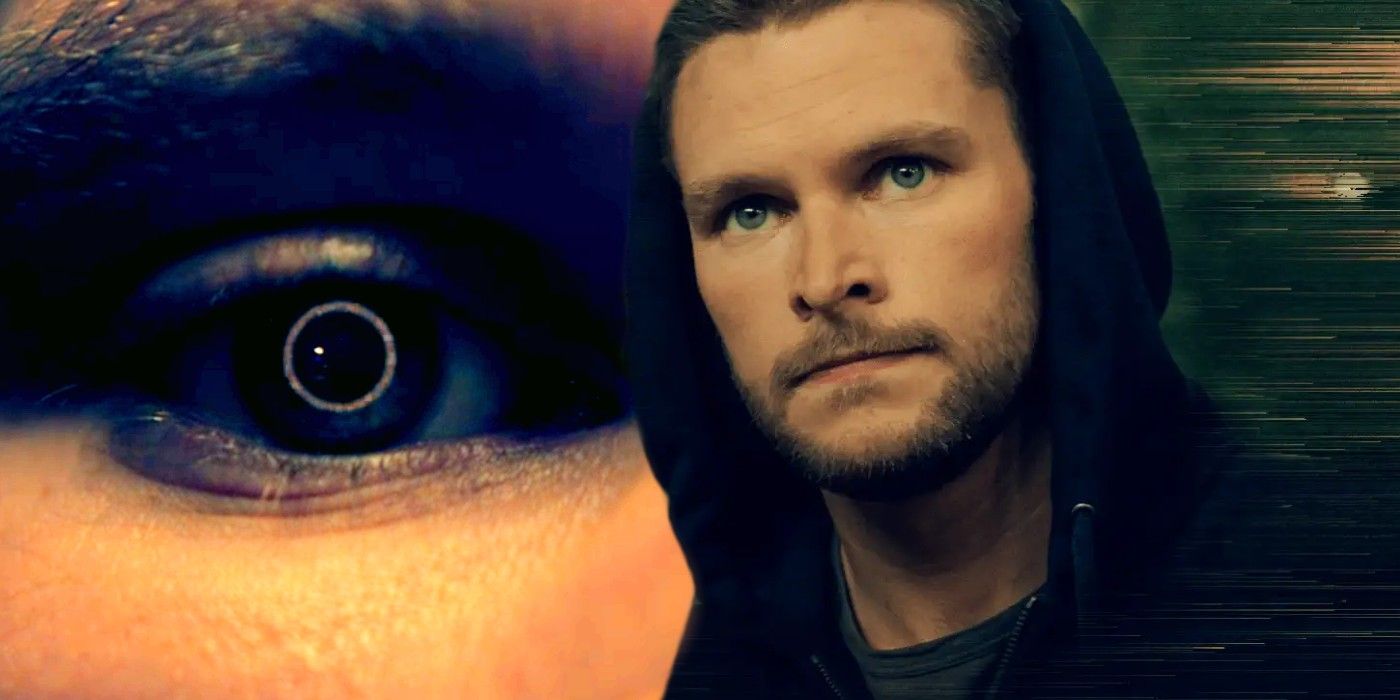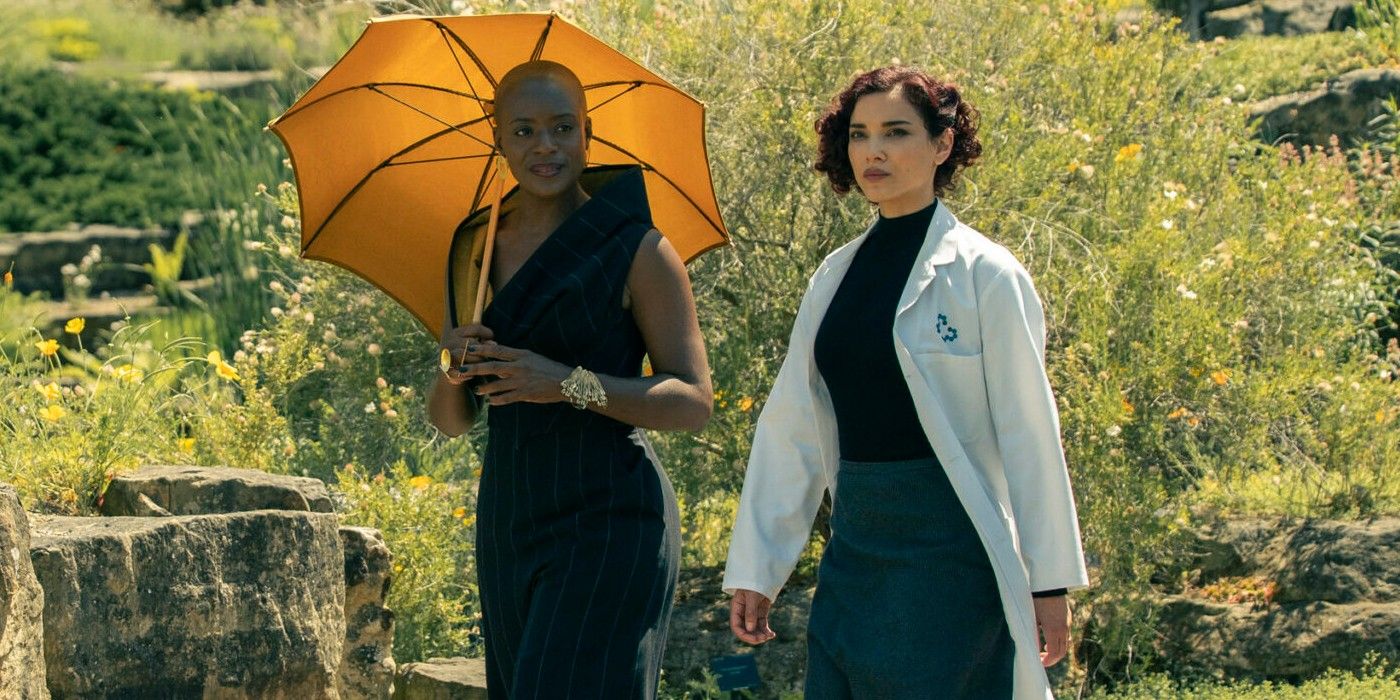Warning: spoilers ahead for The Peripheral episode 5.
Burton Fisher's big twist in The Peripheral episode 5 has been sitting directly under viewers' noses since the premiere. The Peripheral introduces Jack Reynor as Flynne Fisher's brother, Burton. A military veteran, Burton suffers continued side effects from haptic implants placed into his body by the Marine Corps, and The Peripheral has already afforded viewers a clear idea of how this technology operates. The Corps recruited Burton alongside his childhood friends, then implanted them with a neural network before active service. These implants allow members of the unit to see through each other's eyes, communicate silently, and even manipulate drones.
In The Peripheral episode 5, Grace tells Aelita about an experiment taking place in the Research Institute's stub. Through a shell company in 2032, the R.I. apparently bid on a military contract to "install haptic implants in personnel." Essentially, this means the implants troubling Burton and his friends in The Peripheral's past very likely came from the future timeline's R.I., with the technology toned down to an acceptably primitive level. The Burton siblings believe their brush with the future began when Flynne slipped on a mysterious VR headset. In truth, Burton has been part of Cherise's metaphorical doll's house for many years.
The Peripheral's Burton Twist Should've Been Obvious (Why It Wasn't)
Set in 2032, The Peripheral's past timeline is a curious beast, close enough to reality to feel familiar for audiences, but far enough away to introduce plausible advancements in technology. Flynne's timeline in The Peripheral includes widespread 3D printing technology, advanced VR gaming systems, and even the ability to relive memories via an immersive headset. As such, viewers could readily accept Burton Fisher's haptic implants as just another example of The Peripheral's near-future gadgetry.
In hindsight, the difference should have been clear from the beginning. The 2032 timeline in The Peripheral is plainly more advanced than real-world 2022, taking advantage of creative sci-fi license to turn plausible theory into practical reality. Burton's haptics, however, are several levels above that, ascending further into the realm of fiction than 3D printing and VR gaming. As soon as Flynne's headset arrived and The Peripheral revealed technological designs could be sent from the future into the past, suspicions over the origin of Burton's haptics should have been raised.
Burton's Haptics Tease The Peripheral's Villain Plan
Grace and Aelita's conversation in The Peripheral episode 5 more or less explains what the Research Institute hopes to achieve through its haptic experiments on Burton's Marine Corps unit. Burton already discussed the phenomenon he called "haptic drift," whereby two individuals connected through technology begin to feel mutual adoration. As Grace explains to Aelita, the haptic implants can muddle a person's brain chemistry, causing them to feel a false sense of compassion. Research Institute scientists believe that by applying this principle on a larger scale and implanting haptics into the entire population, they can eradicate violence altogether, avoiding another Jackpot.
The Research Institute's haptic experiments also reveal just how sinister the organization can be. In order to test their theory of implants causing artificial emotions, the R.I. coerced soldiers in the stub timeline to sacrifice themselves. Whereas a marine would typically shoot an animal if they suspected it were being used as an enemy trap, to use Grace's example, one afflicted by haptic drift would fall for the ruse and be killed. Some in The Peripheral's world view this as an acceptable loss, since the death happens inside the stub timeline. The likes of Aelita West consider this to be cold, undeniable murder instead.
The Peripheral continues Friday on Amazon Prime Video.



